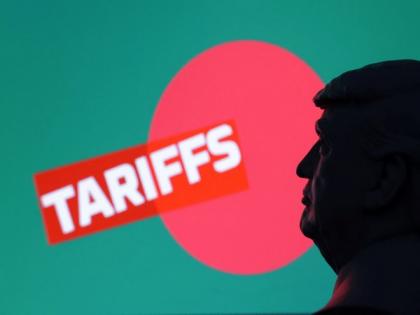Bangladesh hails 20% US tariff, says "good news" for its apparel sector
By ANI | Updated: August 1, 2025 10:49 IST2025-08-01T10:44:33+5:302025-08-01T10:49:48+5:30
Dhaka [Bangladesh], August 1 : Bangladesh has welcomed the outcome of trade negotiations with the United States, securing a ...

Bangladesh hails 20% US tariff, says "good news" for its apparel sector
Dhaka [Bangladesh], August 1 : Bangladesh has welcomed the outcome of trade negotiations with the United States, securing a 20 per cent tariff rate on its exports to the US comparable to its key apparel-sector competitorsafter final talks with Washington. It stated that he country's relative competitiveness in apparel exports remains unaffected, according to a press statement issued by the Chief Adviser of the Government of Bangladesh.
"We negotiated carefully to ensure that our commitments aligned with our national interests and capacity," said Khalilur Rahman, Bangladesh's National Security Advisor and lead negotiator. "Protecting our apparel industry was a top priority, but we also focused our purchase commitments on US agricultural products. This supports our food security goals and fosters goodwill with US farming states."
According to the statement, Bangladesh successfully avoided a potential 35 per cent reciprocal tariff. "That's good news for our apparel sector and the millions who depend on it. We've also preserved our global competitiveness and opened up new opportunities to access the world's largest consumer market," Rahman added.
US President Donald Trump announced new import duties of up to 41 per cent on imports from 70 countries, just ahead of the August 1 deadline for finalizing bilateral trade agreements. The sweeping executive order by Trump is part of a broader US strategy to tie trade access to commitments on economic reform, trade balances, and national security cooperation.
As per the press statement, countries were required to make explicit commitments to purchase U.S. goods to help narrow trade deficits. Given the scope of issues involved, the negotiation process has been complex and time-consuming. Tariff relief was tied not only to reductions in duties on US exports but also to a country's willingness to address U.S. concerns on non-tariff barriers, trade imbalances, and security matters.
President Trump's executive order, as highlighted in the release, made clear that each country's tariff rate would reflect the depth of its commitment across all these areas.
Disclaimer: This post has been auto-published from an agency feed without any modifications to the text and has not been reviewed by an editor
Open in app